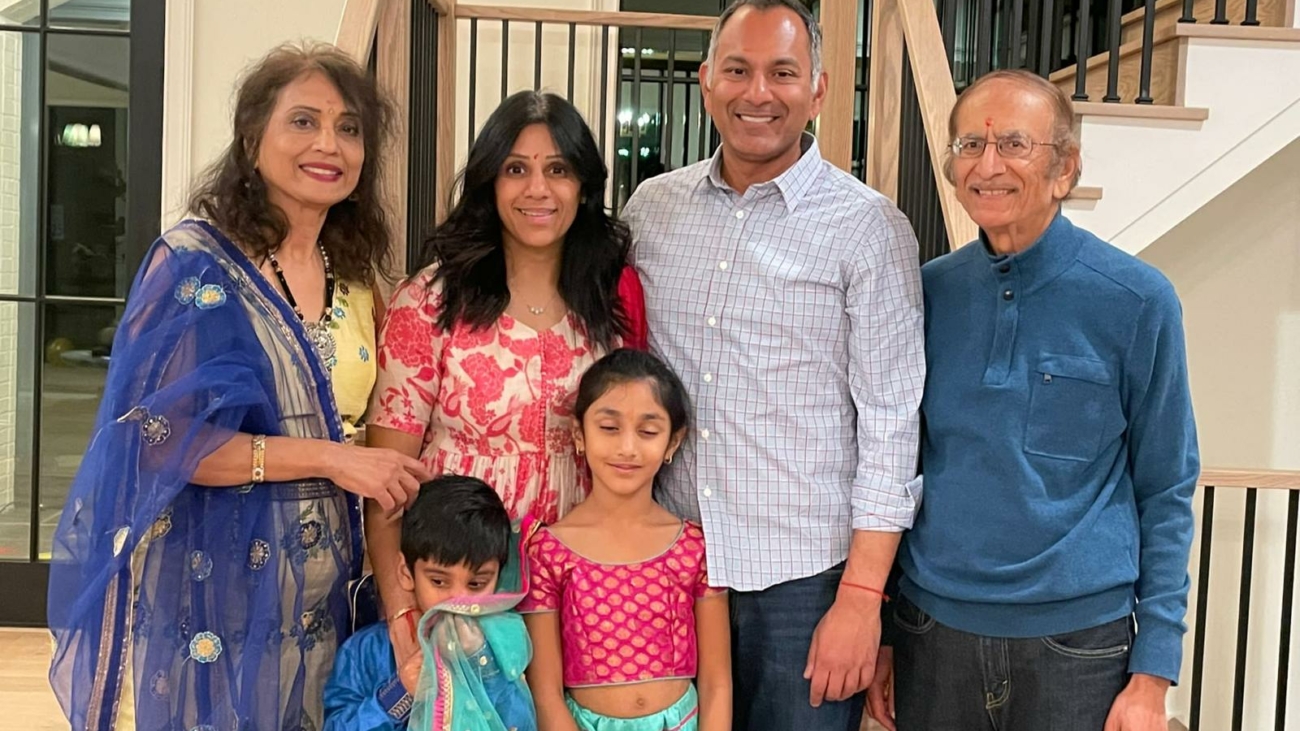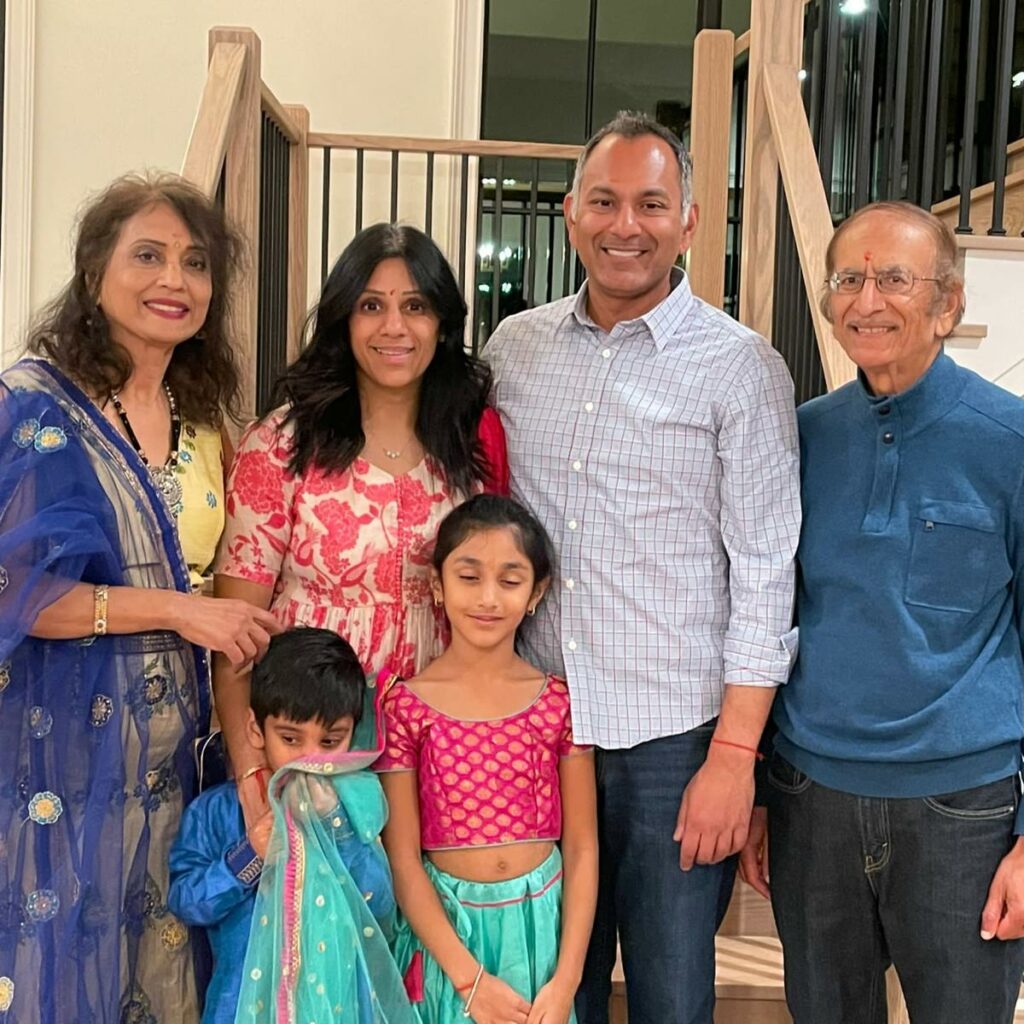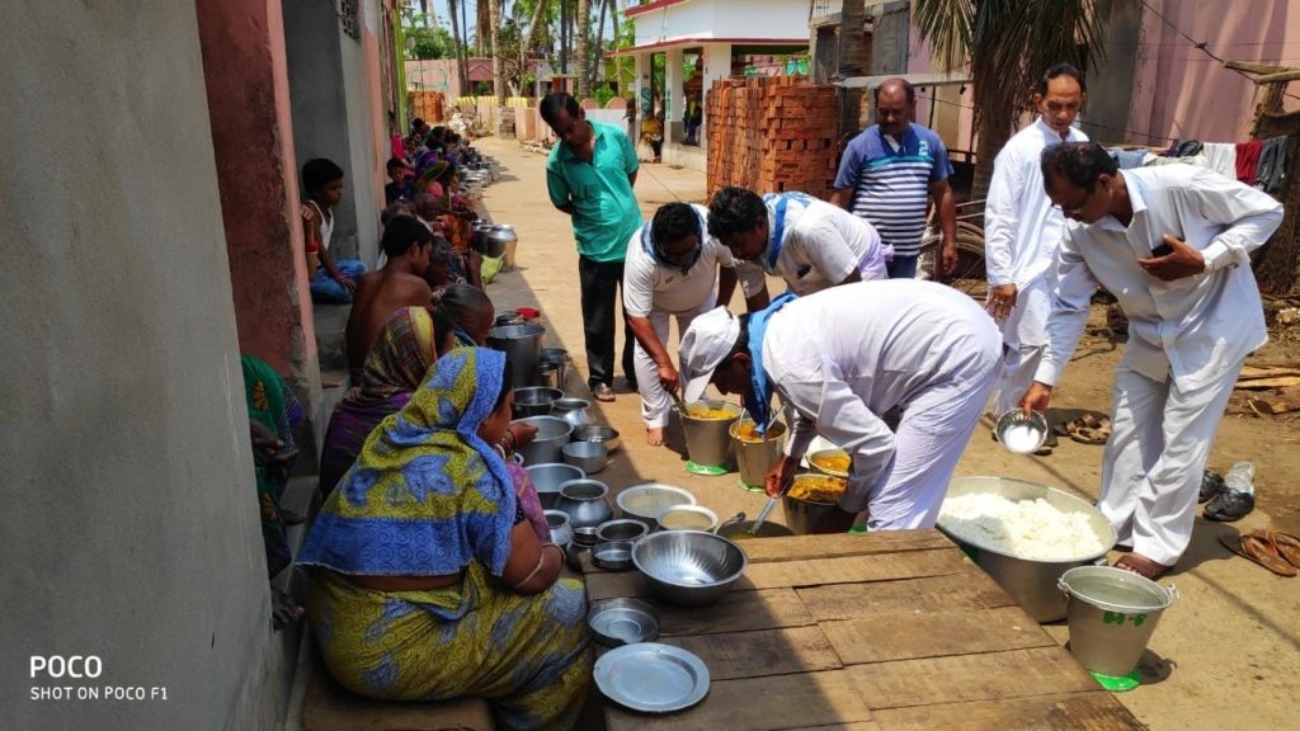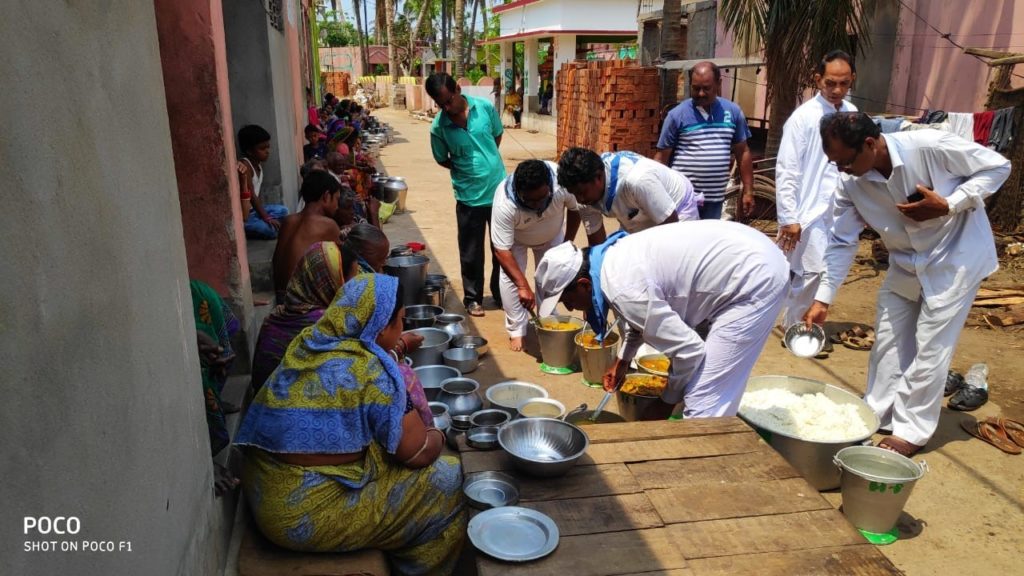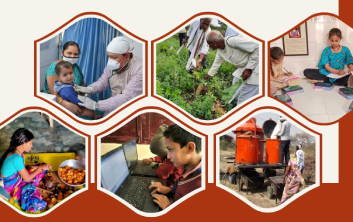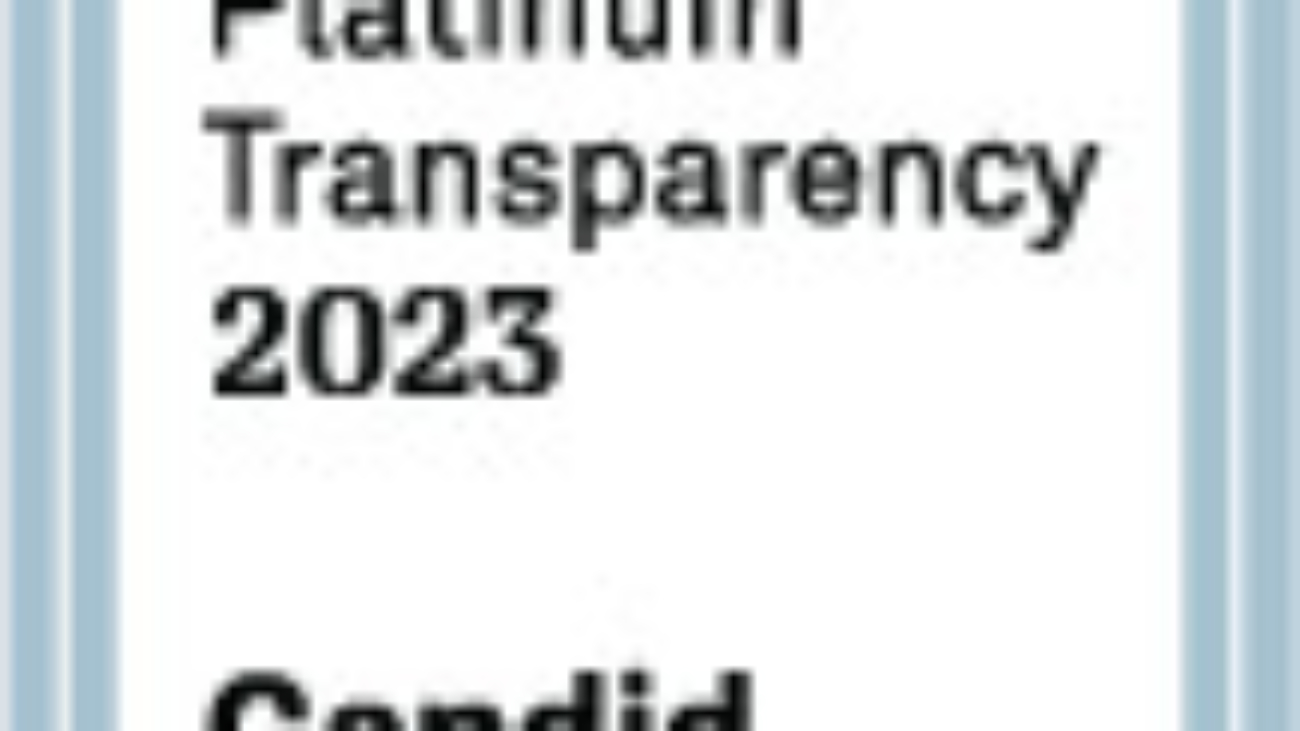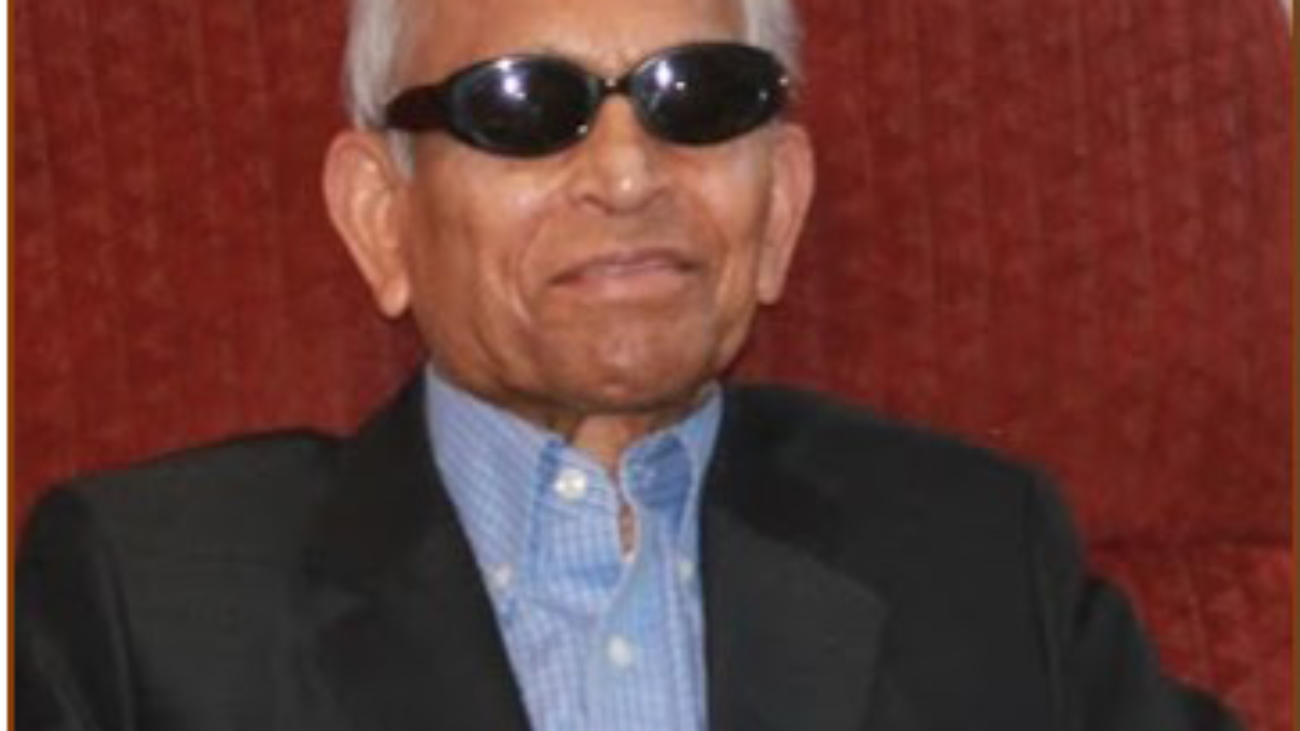As a child growing up in Meerut, India, Dr. Vinod Prakash used to lug a sack of wheat on his shoulder to be ground into wheat flour at the mill. Growing up in a lower middle-class family, with brothers who were fighting for India’s freedom, getting two square meals was a struggle. Persistence, education, and a strong work ethic was his passport to a better life.
Dr. Prakash completed a master’s in math and followed it up with a second master’s in an emerging discipline, statistics, thanks to his sisters, who pooled money to help him complete his second degree at the Indian Statistical Institute in Calcutta. The statistics degree and the fact that he was in the top 5 of his graduating class led to engaging research work with the planning commission in New Delhi. Soon, he was U.S. bound, thanks to a Ford Foundation scholarship to MIT, arriving in 1960 with his new bride,
Sarla, and two suitcases – one filled with clothes, the other with Indian grains and spices. He went on to complete a PhD in economic statistics from MIT and landed a job at the World Bank in Washington D.C.
But that urge to give back to the underprivileged in a society that had helped him succeed compelled Dr. Prakash to take an early retirement as a senior economist from the World Bank after a productive 17-year career. Since then, he has devoted 35 years of his life to the India Development Relief Fund (IDRF), the U.S. based a 501(c)(3) tax-exempt public charity he co-founded.
The initial idea was to help victims of disasters in India, starting with the 1979 Morbi dam collapse in Gujarat. But he quickly realized that other areas needed attention too – women’s education, health, environment sustainability, and more.
The principle driving IDRF’s work is compelling: putting power, not charity, in the hands of the poor.
That means funding specific projects at the grassroots, in collaboration with established non-governmental associations (NGOs) who submit proposals that are vetted by the IDRF board.
Some notable IDRF projects include:
- A school, Savitri Soni Vidya Mandir, was established in 1989 in Nagauri village near Meerut. The village had no running water, no electricity. But IDRF’s funding helped build two rooms, acquire hand pumps for water, and hire two teachers. And the school was born. It currently caters to 620 students from as many as 31 nearby villages.
- Provided over 30 vans/ambulances to support mobile clinics in 16 states across India,
- Shiksha Bharati, a school near Delhi to empower up to 150 girls per year from tribal areas of Mizoram, Assam, and Nagaland. IDRF provides free boarding, lodging and supplies for the students.
The funding comes from donations to IDRF. Donors get a tax exemption, are assured that most of their funding goes to the project (95 cents for every dollar), and gain satisfaction from the fact that they are helping the underprivileged.
Dr. Prakash is grateful to the US for welcoming him with open arms and helping him gain the necessary success to be able to give back to society.
In 35 years, IDRF has funded over $50 million in projects, partnered with 80 NGOs per year and has 110 active projects.
“IDRF gives me the inner strength to keep living,” said Dr. Prakash, an energetic 90-plus who continues his pro-bono work as President, despite losing his sight several years ago. A dedicated staff help run operations. A compelling reason to live, for a cause bigger than life itself.


